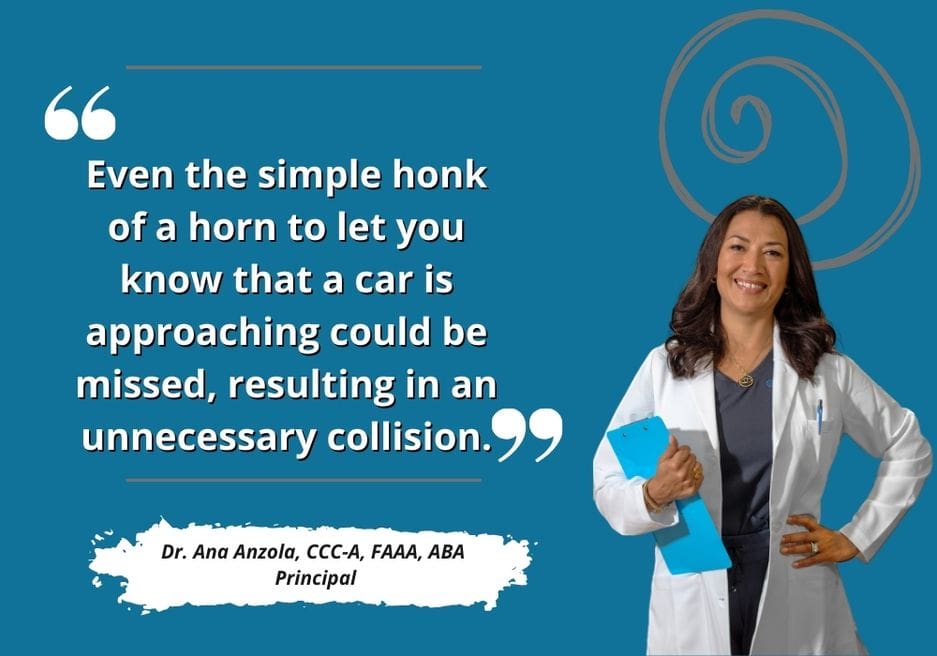When we think about being aware of our surroundings to keep our families and ourselves safe, we often think of being on the lookout for any dangers. But people don’t realize the extent that they use their hearing to keep themselves and their loved ones safe.
Hearing Loss Affects Your Safety
When you are crossing a street or walking across a parking lot, it’s not just the sight of other cars that you are aware of, but also the sound. People may call out to you saying, “Look out!” or “Heads up!” to alert you to things going on around you. When walking down the street or driving in your car, a siren will alert you to an emergency vehicle that is approaching, and a telephone call or fire alarm could save your life by waking you in the middle of the night in case of an emergency.
Hearing Loss Leads To Accidents
When your hearing is compromised, your safety, and the safety of your loved ones, is compromised because you can’t hear many of these sounds. Even the simple honk of a horn to let you know that a car is approaching could be missed, resulting in an unnecessary collision. And though an accident like this may not be life threatening, it could still lead to a lot of avoidable hassle, confusion and expense.
Hearing Loss and Smoke Detectors
Ear and Hearing published a study in February, 2009 which found that the sound made by the standard smoke detectors used by most people (3000 to 4000 Hz) was not sufficient to wake a person with hearing loss. For the millions of people who are walking around asking people to speak up, and turning the volume up on the television – without getting their hearing checked and, if necessary, corrected – this could be a matter of life and death.
Test Your Hearing, Save Your Life
The study tested multiple types of smoke detectors to wake people with hearing loss, and it found that the best type of detector for those with mild to moderate hearing loss was one with a low-frequency (520 Hz) was the best at waking them from sleep. People who are hard-of-hearing are 7 times more likely to be woken by a low-frequency alarm than a standard high-frequency alarm. But unless you know you have hearing loss, how will you know which smoke detector will save your life?




